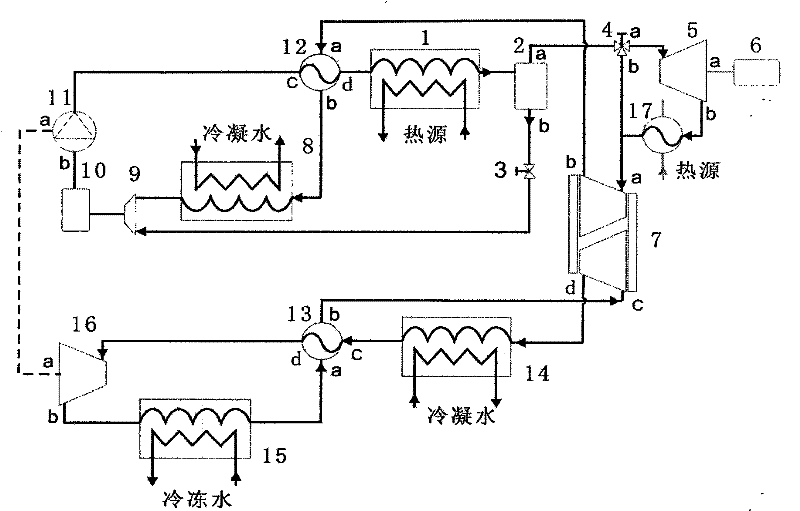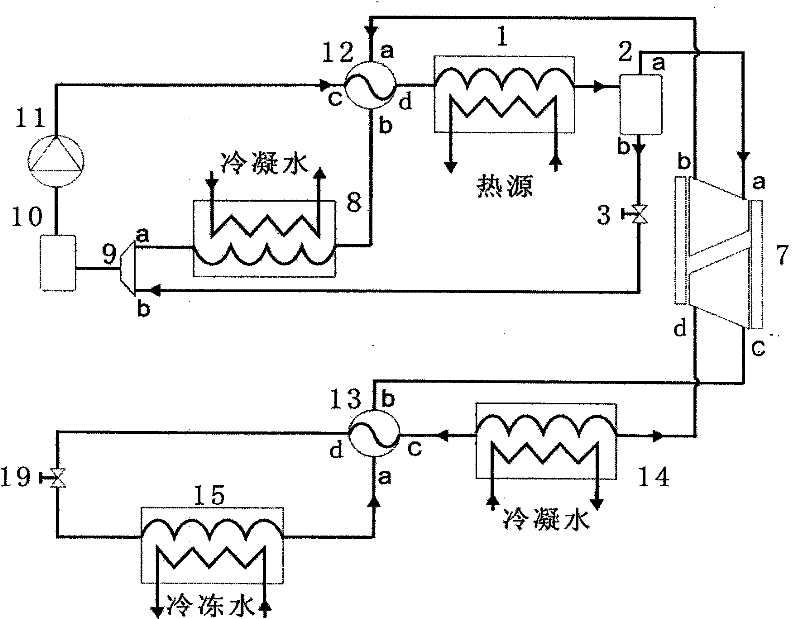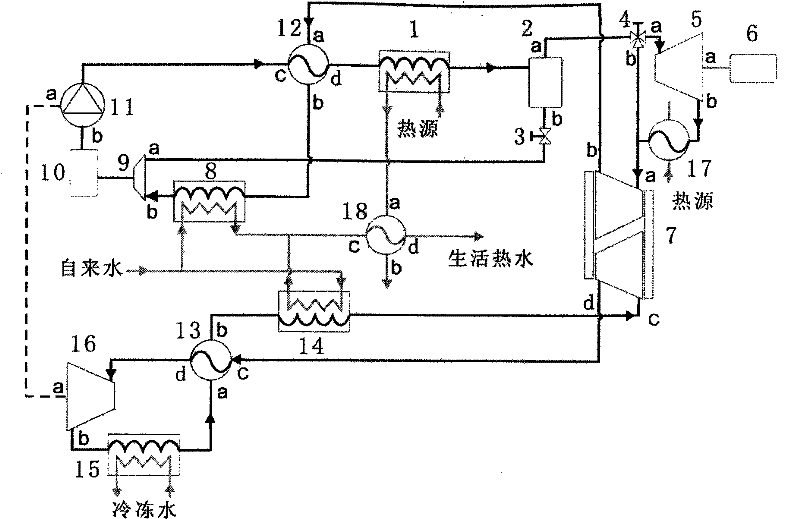Integrated cooling and power generation device driven by thermal energy
A technology of thermal energy and refrigerators, which is applied in the field of new refrigerator generators, can solve the problems of low refrigeration efficiency, immature technology, and large investment, and achieve the effects of improving refrigeration efficiency, output efficiency, and reliability
- Summary
- Abstract
- Description
- Claims
- Application Information
AI Technical Summary
Problems solved by technology
Method used
Image
Examples
Embodiment Construction
[0032] figure 1 Among them, the device consists of two parts: a heat engine driven by heat energy and a refrigerator. The thermal engine consists of a steam generator 1, a vapor-liquid separator 2, a two-way valve 3, a three-way valve 4, a turbine 5, a generator 6, a pressure exchanger 7, a first condenser 8, a confluence 9, and a liquid reservoir 10. The circulating pump 11, the first vapor-liquid heat exchanger 12, and the reheater 17 are connected as follows: the outlet of the gaseous working medium of the steam generator 1 is connected to the inlet of the vapor-liquid separator 2, and the outlet of the liquid working medium of the vapor-liquid separator is connected to 2b The inlet of the two-way valve 3, the outlet 2a of the gaseous working medium of the gas-liquid separator is connected to the inlet of the three-way valve 4, the first outlet 4a of the three-way valve is connected to the inlet of the turbine 5, the output shaft of the turbine 5a is coaxially connected wit...
PUM
 Login to View More
Login to View More Abstract
Description
Claims
Application Information
 Login to View More
Login to View More - R&D
- Intellectual Property
- Life Sciences
- Materials
- Tech Scout
- Unparalleled Data Quality
- Higher Quality Content
- 60% Fewer Hallucinations
Browse by: Latest US Patents, China's latest patents, Technical Efficacy Thesaurus, Application Domain, Technology Topic, Popular Technical Reports.
© 2025 PatSnap. All rights reserved.Legal|Privacy policy|Modern Slavery Act Transparency Statement|Sitemap|About US| Contact US: help@patsnap.com



